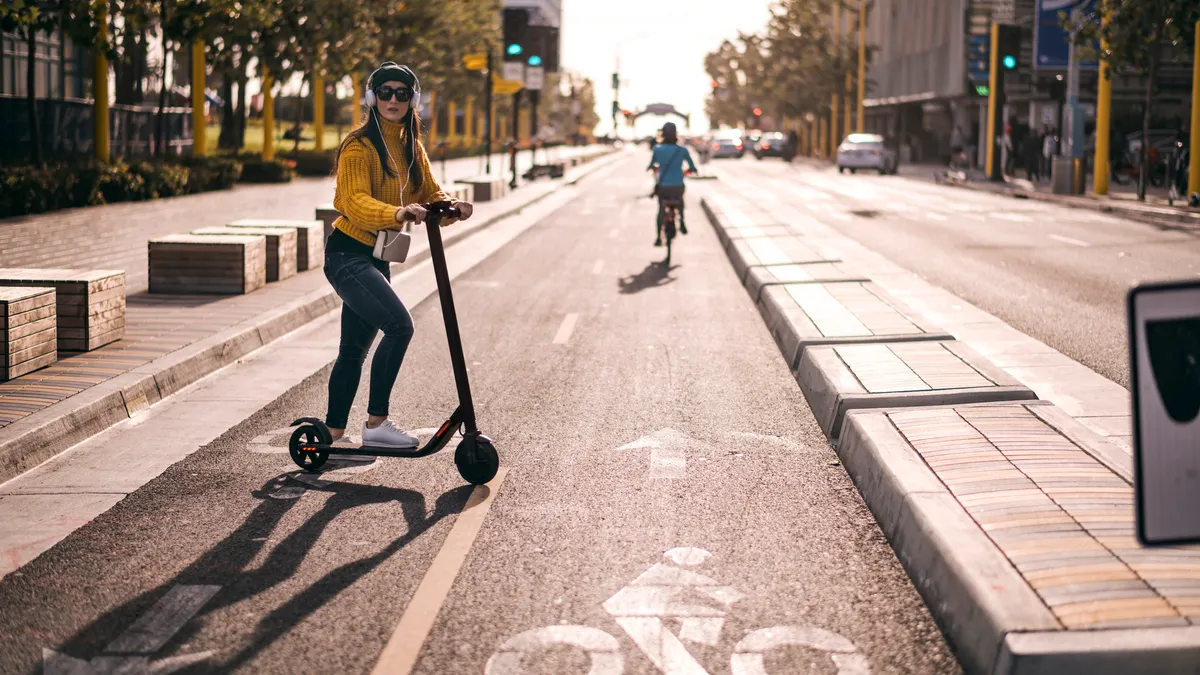E-scooters are leaving Pittsburgh’s streets after a state-approved, two-year pilot program testing the micromobility option came to an end earlier this month.
Pittsburgh’s e-scooter purge is not due to a citywide ban like that in Paris. Rather, it comes amid a lack of state-level action needed to renew the pilot program. Pennsylvania is one of the only U.S. states where e-scooters are not legal. State law simply does not define e-scooters as permissible vehicles.
Pittsburgh was able to launch e-scooters in July 2021 due to the passage of state legislation allowing two-year e-scooter pilot programs in “cities of the second class,” which have populations between 250,000 and 1 million. Pittsburgh is the only second-class city in Pennsylvania. After the shared e-scooter pilot legislation was passed, the city quickly issued a permit to micromobility company Spin.
"When the ordinance expired after two years, e-scooters reverted to being illegal in the state," Colin Murphy, research and consulting director for the nonprofit Shared-Use Mobility Center, said in an email. The removal of Spin e-scooters from Pittsburgh “pretty much comes down to that," he said.
In its effort to get the pilot renewed, the city has lauded the success of the pilot program. Pittsburgh Department of Mobility and Infrastructure Director Kim Lucas said in an April city council meeting that e-scooters were “filling a gap in our transit system.”
However, e-scooter critics in Pittsburgh have alleged that the city hasn’t done enough to ensure e-scooters are used safely and not left to block sidewalks and other public spaces. Critics also say e-scooters are prohibitively expensive for many residents, and that the program is exclusionary to people who have disabilities, exceed Spin’s weight limit or need space to store cargo.
Indeed, state Sen. Jay Costa, one of the original sponsors of the 2021 e-scooter effort, does not support the renewal of the program without significant changes. Costa has suggested imposing fines on Spin or program users who allow e-scooters to clutter the sidewalk.
The state legislature in Harrisburg is currently reviewing legislation to renew the pilot program, but the sharply divided government is in a stalemate over passing a new state budget. The e-scooter bill hasn’t been considered since May, though Costa and others are in talks on how to improve it.
The legislation first authorizing e-scooters in Pittsburgh was passed when it was incorporated into the fiscal code bill, part of the 2021 budget package.
Clarification: This story was updated to clarify the type of work done by the Shared-Use Mobility Center.










